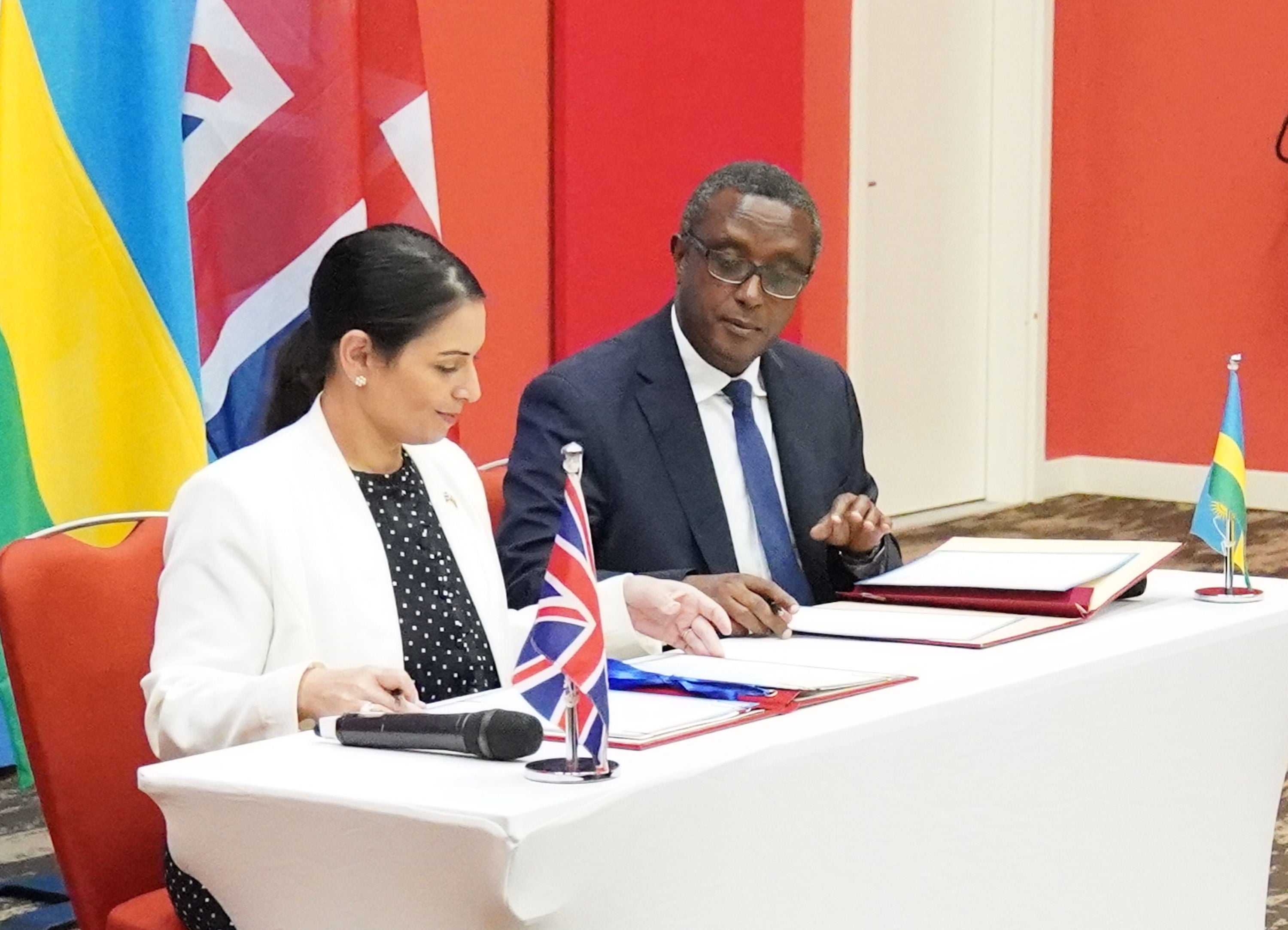Torture and trafficking victims could be sent to Rwanda because of ‘inherently flawed’ process, lawyers warn
Evidence submitted to House of Lords inquiry says assurances given by Rwanda are ‘not binding or enforceable’

Victims of torture and trafficking could be sent to Rwanda by the British government because of “inherently flawed” screening processes, lawyers have warned.
In an analysis submitted to a House of Lords inquiry examining the scheme, the Law Society of England and Wales said safeguards to prevent the deal breaking domestic and international law “are not binding or enforceable”.
The Law Society’s president Stephanie Boyce said: “If an asylum-seeker’s human rights were breached in Rwanda they would have no way of seeking justice in the UK.
“They wouldn’t be able to appeal to British courts and there is nothing the UK could do to enforce their rights under the terms of the agreement.
“There are also potential breaches of international law at the UK end of the deal.”
The assessment came days ahead of the first of two High Court challenges over the legality of the agreement.
Home secretary Priti Patel signed the deal in April but the first planned flight to take asylum seekers to Rwanda was grounded in June amid a wave of legal cases and injunctions by the European Court of Human Rights.
Further flights are not expected to be scheduled until after the High Court decides the outcome of two judicial reviews in October, although the Home Office has issued new “notices of intent” to people who may be selected for transfer.
The government has said the plans are legal and Rwanda is a safe country, but documents already revealed in a case brought by charities, Border Force staff and asylum seekers show that British government officials issued warnings over human rights abuses and advised against the agreement.
At a preliminary hearing in July, the High Court was told that several people selected by the government for transfer to Rwanda have subsequently been identified as potential trafficking victims.
They have received “reasonable grounds” decisions from the National Referral Mechanism, which is the government’s own official framework for identifying and supporting victims of modern slavery and human trafficking.
But the High Court heard that they were not flagged to the scheme until after they were detained by the Home Office and served with legal notices saying they would be sent to Rwanda.
The Law Society said that under the current terms of the agreement, people will not be given sufficient notice of their removal to Rwanda to get legal advice.

“The short timeframe for screening asylum-seekers could mean the Home Office fails to identify people who it would be unsafe to send to Rwanda, such as torture or trafficking victims, people with disabilities or other protected characteristics,” Ms Boyce said.
“We are concerned that failure to properly identify specific issues could be incompatible with our domestic law and international obligations … we believe this part of the memorandum of understanding is inherently flawed and unfair and gives rise to a real risk that individuals may be removed to Rwanda without having had adequate access to legal advice or effective representation.”
The agreement between the two governments states that assurances by Rwanda on the treatment of asylum seekers “will be monitored” by two new committees, but they have not been set up.
The Law Society is among groups submitting evidence to the House of Lords international agreements committee, which has launched an inquiry examining the Rwanda deal and the legal assurances and safeguards around it.
Ministers have argued that the scheme would “deter” asylum seekers crossing the Channel on small boats but numbers have soared to new highs since the announcement.
Official figures released on Thursday show that Home Office spending on asylum rose to £2.1bn in 2021-22, the highest figure on record.
The 63,089 asylum applications in the year to June 2022 is also the highest number in more than two decades, and a record 117,945 people are waiting for an initial decision.
Of the 50,297 people who arrived on small boats between January 2018 and June 2022, 94 per cent applied for asylum and only 8 per cent of the claims processed so far have been refused.
The Home Office said: “We are confident that our migration partnership with Rwanda is fully compliant with national and international law. We will continue to progress the partnership to prevent loss of life in the Channel, and inform those who come to the UK through dangerous, illegal and unnecessary routes that they are in scope to be relocated to Rwanda, where they may claim asylum and be supported to build a new life.
“Everyone considered for relocation will be screened and have access to legal advice. Decisions will be taken on a case-by-case basis and nobody will be relocated if it is unsafe or inappropriate for them.”
Join our commenting forum
Join thought-provoking conversations, follow other Independent readers and see their replies
Comments


Bookmark popover
Removed from bookmarks